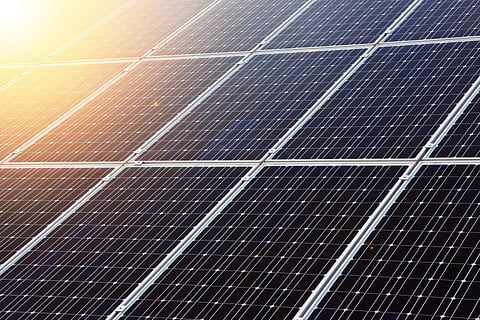The Need for Long-term, Reliable and Sustainable Investment for Clean Energy
Amidst growing climate concerns, clean energy has emerged as a crucial pathway for mitigating carbon emissions and catalysing lasting environmental change, generating the energy we need without harmful greenhouse gas emissions.
Coal is still the single largest source of electricity globally but renewables generated 12% of global electricity in 2022, up from 10% the previous year, with solar rising by 24%.
Technological advancements, such as The Mohammed bin Rashid Al Maktoum Solar Park, the largest single-site solar park in the world, underscores the UAE’s potential to accelerate the clean energy transition.
Countries around the world are setting their own net-zero targets, keen to be a part of the global response to climate change. In the Middle East, the UAE, Bahrain, Saudi Arabia, Oman and Kuwait have all pledged to reach net-zero carbon emissions by 2050.
And with the UAE hosting COP28 last year, and Egypt hosting COP27 in 2022, the region is positioning itself as firmly committed to boosting clean energy generation and supporting decarbonisation efforts.
The UAE, known for its visionary leadership, stands at the forefront of the clean energy transformation. The UAE government is seeking to slash emissions by 40% by 2030 from a business-as-usual level with a 51% cut in emissions from electric power grids.
As a result, the UAE’s green economy has experienced remarkable growth, driven by the UAE's commitment to shrinking its carbon footprint and diversifying its energy portfolio.
Last April, NBF provided a long-term credit facility to CleanMax for refinancing its rooftop solar portfolio in the UAE. The facility accelerates the growth of rooftop solar panels and covers 48 different operational rooftop solar assets, located on industrial facilities, malls, schools and universities.
According to the UAE’s Renewable Energy Strategy 2050, decarbonising the power industry is a top priority and by 2050 the UAE plans for 50% of energy generated in the country to be from renewable or nuclear sources.
Last February, NBF signed a facility contract with Yellow Door Energy to finance 31 solar power plants in operation with a combined capacity of 39 megawatts, in line with the goals of COP28, the UAE’s Clean Energy Strategy 2050, and the UAE’s ‘Year of Sustainability’.
Financial institutions are playing a key role in supporting the implementation of ambitious clean energy projects that can have a significant impact on the energy landscape.
Banks in the UAE align financial resources with environmental goals to accelerate the clean energy transformation the planet urgently requires.
Among the most important measurable KPIs for clean energy projects is the increase in revenue resulting from renewable energy investments. This indicates not only the economic viability of such projects but also showcases the growing profitability of sustainable investments, catalysing future financial commitments to the clean energy transition.
Increased investment by banks, due to increased profitability, also improves the availability of clean energy sources for a more sustainable future, in a virtuous cycle.
Equally significant is the reduction of carbon emissions, a pivotal KPI for those nations in the region with ambitious net-zero targets. Clean energy projects play a critical role in diversifying energy sources and reducing reliance on fossil fuels, contributing to a nation's energy security and boosting resilience.
Investments in clean energy projects yields a multitude of far-reaching and long-lasting benefits, contributing to a sustainable and resilient present and future. Clean energy investments enhance the reliability of robust and adaptable energy infrastructure with diversified energy sources ensuring a stable and consistent energy supply.
Clean energy investments also drive advancements in technological research, development, and innovation, accelerating the transition towards more efficient and accessible renewable technologies, and fostering economic growth and job creation.
Furthermore, clean energy projects lower the cost of electricity over the long term. As renewable energy technologies advance and become more efficient, they increasingly offer cost-effective alternatives to conventional fossil fuels, ultimately reducing the financial burden on consumers and businesses who can pass the savings onto customers.
To conclude, the overall benefits of investing in clean energy extend beyond financial returns. By embracing clean energy, the UAE's forward-looking climate leadership is actively contributing to a brighter and more sustainable future that supports energy security.
Financial institutions in the UAE are emboldened to catalyse the positive impact of clean energy through collaborations, fuelling reliability, cost efficiency, security, and sustainability.
The time for climate action is now, with the UAE’s clean energy transition, and we re-affirm our commitment to supporting the UAE’s Energy Strategy 2050 goals.


